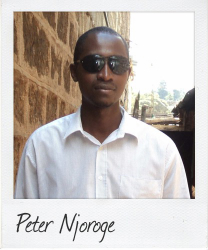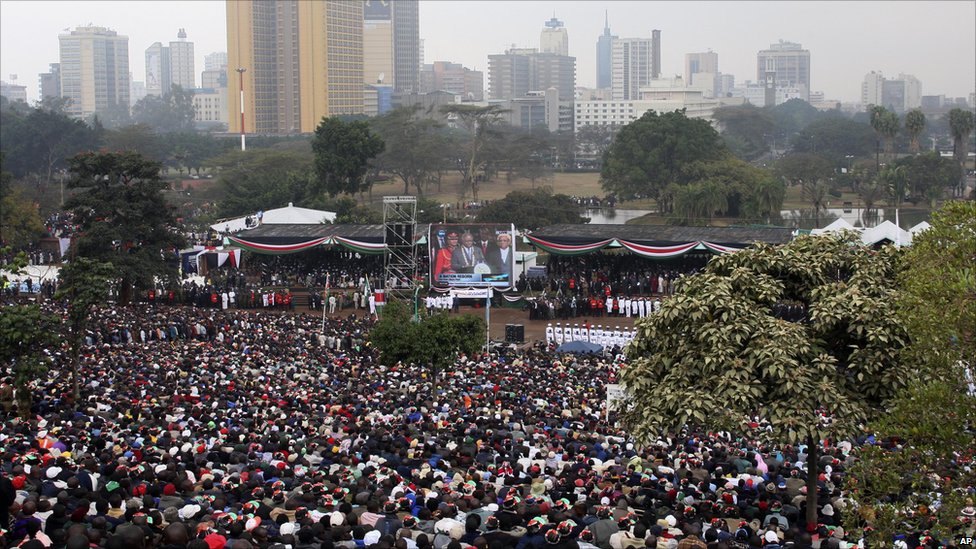“Kenya needs to rise beyond tribal politics”
December 24
 Kenya’s coalition government has been working to reconcile the country since it was plunged to the brink of collapse in tribal violence that followed the 2007 election, writes Peter Njoroge, 25, a Commonwealth Corrrespondent from the town of Kiambu in Kenya. But as elections approach there are concerns about whether enough has been accomplished.
Kenya’s coalition government has been working to reconcile the country since it was plunged to the brink of collapse in tribal violence that followed the 2007 election, writes Peter Njoroge, 25, a Commonwealth Corrrespondent from the town of Kiambu in Kenya. But as elections approach there are concerns about whether enough has been accomplished.
The peace that initially followed Kenya’s 2007 elections turned out to be the calm before a major storm as violence and chaos threatened to cast the country into a prolonged civil war.
Have we done enough to ensure this violence will not be repeated? This should be the question on everyone’s lips as the country nears general elections in March 2013.
The answer is not as simple as it should be and the answers are not homogenous either. There is a growing sentiment that the ruling regime has not done enough and that no one can say with absolute confidence that the ugly demon of tribalism will not rear its head once again.
In 2007 the people voted in large numbers in an otherwise uneventful election which pitted the incumbent president Mwai Kibaki against Raila Odinga. Initially it seemed this would be a repeat of or even improvement on the peaceful elections of 2002.
But election results favouring the incumbent were disputed, and the opposition call for demonstrations against the results led to chaos manifested through violence, looting and tribal killings.
Retaliation followed. Death became the order of the day and millions were displaced from their homes to languish in cold IDP camps. People who had lived for years as neighbours turned on each other, hacking them and their children to death. Others were burnt to death, even in the refuge of a holy church. Businesses were looted or razed as communities persecuted those perceived to be members of other tribes.
Efforts were made to end the impasse with diplomats from the U.S. and emissaries from Africa sent in to mediate a peaceful solution. Finally, efforts by Koffi Annan and his group led to a coalition government tasked with seeing that the country enacts sufficient reforms to ensure it never teeters to the brink of collapse again.
Looking at those reforms, perhaps the problem is not what has been done but what could potentially be undone by selfish politicians in the remaining few months.
In the last election, some politicians attempted to balkanize Kenya by portraying the election as a contest between the Kikuyu and all other tribes. Recent attempts to prosecute some politicians on hate speech charges show the culture of manipulating tribes to amass power is still rampant. Unless we act decisively to curb the practice, the country is not safe from chaos.
The coalition government has done a lot to reconcile the country by attempting to understand the problems that provided a fertile ground for the violence. Major reforms have been carried out in the judiciary, police and prosecution to encourage more peaceful alternatives in the future. The hallmark of this efforts was a new constitution endorsed by the Kenyan people as a guideline to a more prosperous and peaceful Kenya. To discourage impunity, the ICC indicted some high profile people and will try them next year on charges of genocide, rape, displacement and other charges which the prosecutor might deem necessary. But still, the feeling remains that we haven’t done enough.
Families still languish in IDP camps across the country, with little official assistance for resettlement. In fact some efforts to resettle them in some regions have been met with hostility by local communities, signaling that reconciliation efforts haven’t achieved their intended goals.
Politicians facing charges in the ICC are among front-runners in the coming election, casting doubt on the seriousness of courts to stop future transgressions. Commissions tasked with the duty of reconciliation the nation and averting similar occurrence have not achieved much despite their large mandates and hefty remuneration. Present political deals depict tribal motivations, leading many to wonder what happened to nationalistic politics.
The people of Kenya need to rise beyond tribal politics and understand that we either rise or fall as one nation.
Together we can chart a better future for ourselves and our children, and send a clear message to the politicians. Never again shall we let a few selfish individuals push us to destroy what we have built in so many decades. Peace is the foundation on which we shall base our future growth, development and unity.
Photo:bbc.co.uk
…………………………………………………………………………………………………………………
About me:
“Born in a town near Nairobi, I’ve had to face many challenges in line with many Kenyans who hail from humble backgrounds. Educated through public school from elementary school all the way to Kenyatta Universitywhere I studied economics and philosophy.
“I do various writing jobs to earn a living since writing is not only a calling but a vocation too. I hope that one day I’ll be able to actively help in the journey towards global youth empowerment – not just on a political level but social-economic too.”
…………………………………………………………………………………………………………………
Opinions expressed in this article are those of the author and do not necessarily represent the views of the Commonwealth Youth Programme. Articles are published in a spirit of dialogue, respect and understanding. If you disagree, why not submit a response?
To learn more about becoming a Commonwealth Correspondent please visit: http://www.yourcommonwealth.org/submit-articles/commonwealthcorrespondents/
…………………………………………………………………………………………………………………




